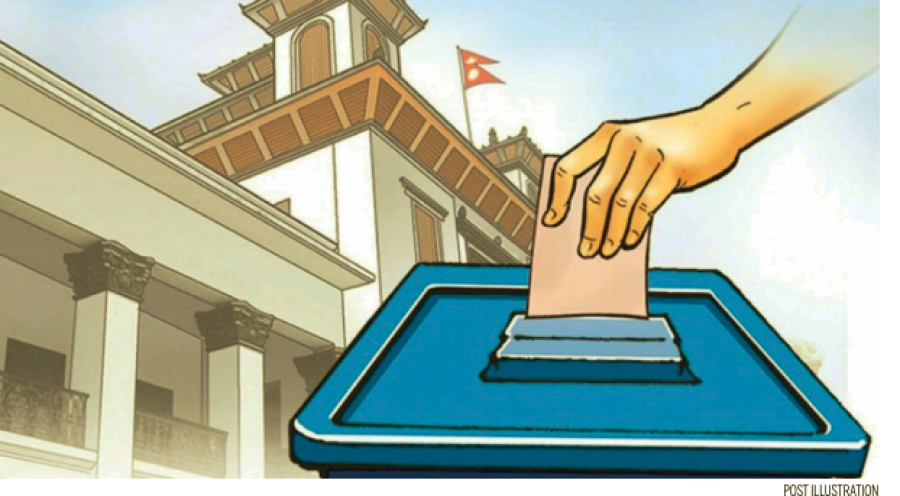National
Election Commission initiates preparations for polls
It is assessing the budget, human resources and materials required, says an official.
Prithvi Man Shrestha
Following the sudden announcement that parliamentary elections will take place in April and May, the Election Commission has started its preparations to conduct the polls.
President Bidya Devi Bhandari, upon the recommendation of the Cabinet, dissolved the House of Representatives on December 10 and announced that parliamentary elections will take place on April 30 and May 10.
The sudden announcement has caught stakeholders off-guard. But, officials at the poll body said that as the constitutional body responsible for holding elections, it needs to start preparations to be able to hold elections on time.
While the commission has also been tasked with ending the legitimacy dispute between rival factions of the ruling Nepal Communist Party, preparation of logistics is another important task that the poll body needs to accelerate.
“Assessing the budget requirements, preparing work plans for the election and updating the voters’ list are some of the things we need to do urgently. We are preparing internally for these tasks,” said Raj Kumar Shrestha, spokesperson for the commission.
After the polls were announced, the voters’ name collection process has been suspended automatically as per the law. During the last parliamentary elections held in 2017, 15.42 million were registered to vote. “The number of voters might have reached around Rs16.5 million this time,” said Shrestha.
During the process to update the voters’ list, voters are given the opportunity to rectify errors on the list and make claims and counterclaims. “After we assess the list we have, we will go to the local governments to finalise the list,” said Shrestha.
The voters’ list needs to be updated after a voter migrates to another location. Dead people should also be removed from the list.
The election body is planning to seek an additional budget from the government for logistics and human resources management. The government has allocated Rs 480 million to the commission. “We are assessing the budget required for holding the elections. It will take a few days to determine the resources required to hold the elections,” said Shrestha.
During the last federal and provincial elections, which were held together in 2017, the commission had spent over Rs7.7 billion.
“Obviously, the required budget is likely to soar because of inflation in the last three years and measures to be taken to prevent the spread of the Covid-19,” said Shrestha.
“The scale of human resources to be mobilised and materials to be purchased for holding the elections will also determine the cost.”
The commission said that it is currently taking stock of goods that were purchased for the past elections that could be used in the upcoming elections. The commission has also held talks with Janak Education Material Centre regarding the printing of ballot papers.
“The commission is asking us to be ready to print ballot papers for both first-past-the-post and proportional electoral system,” said Mahesh Timilsina, general manager of Janak Education Material Centre. “The commission will notify us about the number of ballot papers to be printed later.”
Timilsina said that the centre has four printing presses that could be used for printing ballot papers. Two of them are currently in operation while two others need maintenance.
Other tasks to be done by the commission are: printing of the voters’ identity cards, publishing and distributing of voters’ education materials, and providing training and mobilising volunteers for voters’ education.
Shrestha said that as the commission was still in the early stage of preparations, things will gather momentum after concrete plans are prepared.
During the three-tiers of elections held in 2017, 14.5 million voters’ identity cards were printed for local polls while additional 2.17 million identity cards were printed for federal and provincial elections held in 2017. The poll body had mobilized 19,809 volunteers for voters’ education.




 8.79°C Kathmandu
8.79°C Kathmandu















